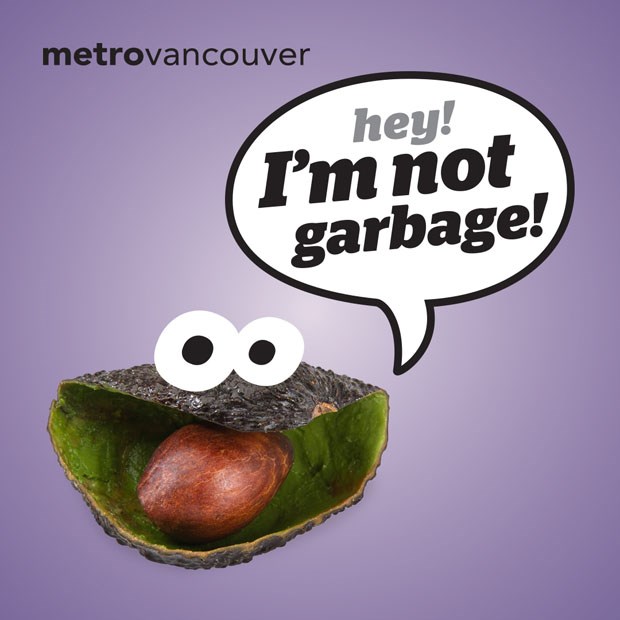Metro Vancouver is launching an enhanced organics recycling campaign to further build on the region’s waste diversion successes by reminding people, Hey! Food Scraps Aren’t Garbage.
Since the implementation of the organics disposal ban in 2015, approximately 1.6 million tonnes of organics have been diverted from the landfill through 2018, reducing greenhouse gas emissions by over half a million tonnes. The organics recycling rate in Metro Vancouver went up 60% between 2013 and 2017, and currently stands at about 68%.
“Thanks to the combined efforts of residents, businesses and member jurisdictions, our region remains a leader in North America for waste diversion,” said Jack Froese, chair of Metro Vancouver’s Zero Waste Committee. “However, we can do even better – especially when it comes to green bin etiquette for avoidable food waste and plastic.”
Nearly all single family and multi-family residences now have some form of organics collection. While the program continues to be successful, there is room for improvement.
Metro Vancouver’s website includes new resources to help alleviate the confusion around composting, including a comprehensive list of what goes in the green bin (and what should stay out), tips to make green binning cleaner and more convenient, and links to information about municipal food scraps recycling programs.
“Metro Vancouver is also reminding people not to put any type of plastic into their green bins,” added Froese. “Plastic bags, containers, produce stickers and cutlery, even those labeled ‘biodegradable’ or ‘compostable’ may not break down fully at compost processing facilities and can contaminate the finished compost.” Read more about plastics in the green bin here.
Diverting food waste to the green bin is better than sending it to a landfill, but preventing food from being wasted in the first place is an even better way to lessen our impact on the environment.
Results from Metro Vancouver’s 2018 Food Waste Diaries research project, where about 500 households tracked their green bin usage, found that 57% of food placed in the compost could be considered avoidable, consisting mostly of leafy vegetables, fruits (especially apples and bananas), leftovers, as well as dairy products.
These findings are in line with previous research from the National Zero Waste Council and Value Chain Management International, which suggested approximately 60% of all food disposed of in Canada is considered avoidable.
The Hey! Food Scraps Aren’t Garbage campaign will reach residents through targeted advertising in transit shelter ads, bus sides, television PSAs, online ads, and social media.
Residents with composting conundrums are also encouraged to engage with Metro Vancouver via Instagram using the hashtag, #GreenBinQandA to have their questions answered.



